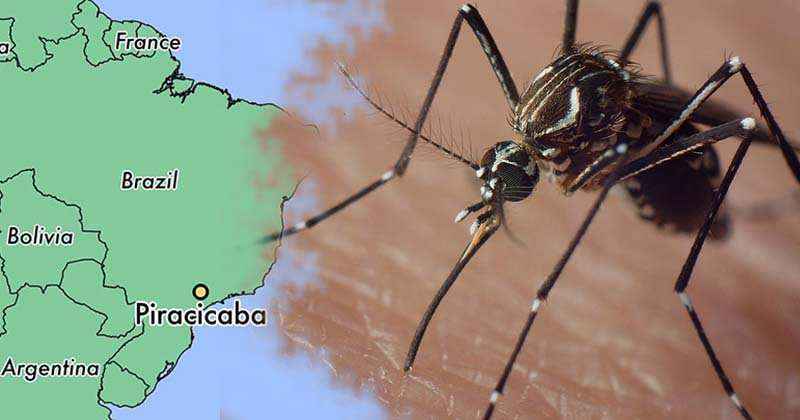09 Nov Factory-Bred Mosquitoes in Brazil Set to be Released in Order to Wipeout Disease Carrying Ones
In an attempt to eliminate the mosquitoes, specifically the species Aedes aegypti, that carry diseases such as chikungunya, dengue, yellow fever and Zika, scientists in Brazil are set to free millions of factory-bred mosquitoes.
According to the British firm Oxitec, these genetically modified mosquitoes will perform the method of mating with the females which will spawn babies with a genetically inbuilt deficiency that will cause them to die instantly.
After doing their supposed job, the modified male mosquitoes then die as what they are genetically programmed.
Being the first and biggest factory of genetically modified mosquitoes in the world, the one Piracicaba in Brazil can weekly produce 60 million modified mosquitoes as said by Hadyn Parry, Oxitec’s president. And as of the moment, only Piracicaba is Oxitec’s Brazilian customer, however, they have already reached out to other municipalities and states.
Piracicaba mayor have already signed a four-year deal amounting to $1.1 million with Oxitec letting the company release 10 million factory-bred mosquitos in its first wave into the said city of 360,000 people.
It was in between 2011 and 2014 when the firm conducted field tests in the Cayman Islands and Panama, and in the northeastern Brazilian state of Bahia. It resulted to an observed drop of wild Aedes aegypti population by 90 percent.
Not having the sales permit from the Anvisa health authorities in Brazil just yet, and there are no epidemiological studies which show if there was a drop in the number of mosquito-carried diseases after the factory-bred insects are released just yet, Parry is not concerned and that they are still waiting for the Anvisa approval by 2017.
With the summer approaches in the southern hemisphere, the population of mosquito and cases of the diseases that they carry is likely to upsurge, thus, there is a need to push for insect control.
In Brazil alone, there were 1.4 million cases of dengue and 174,000 cases of Zika recorded as of July this year.
It has already been known that Zika is extremely dangerous among pregnant women causing birth defects such as microcephaly to their offsprings, and is also linked to Guillain-Barre syndrome, a nerve and immune disorder.
Source: Manila Times



No Comments